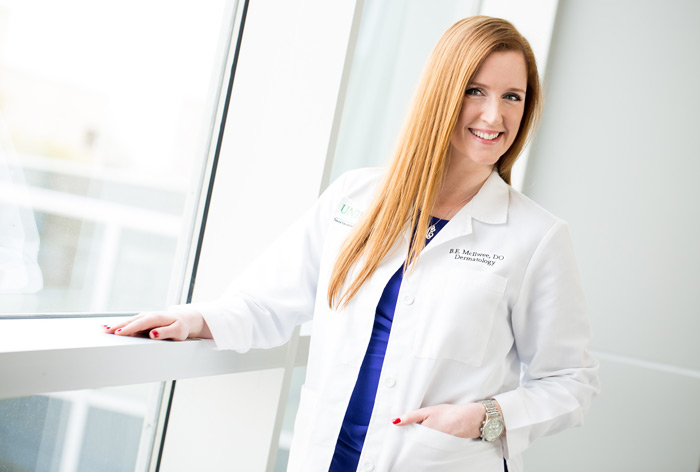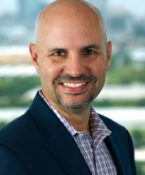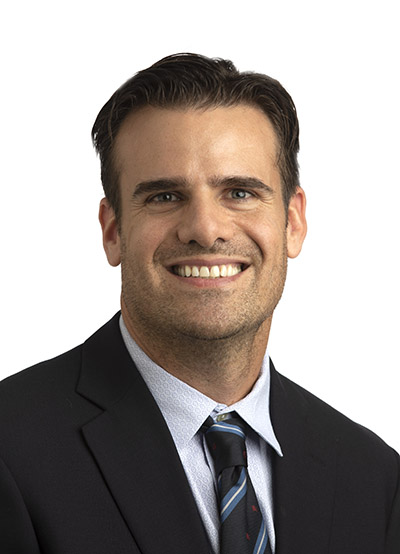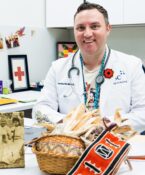UNTHSC resident demonstrates leadership in dermatology field

A dermatology resident at UNT Health Science Center’s Patient Care Center has attracted national attention as a leader in her field.
Bridget McIlwee, DO, was one of five other “Next Generation DOs” to be asked by the American Osteopathic Association to speak in Seattle at the world’s largest gathering of osteopathic physicians, the Osteopathic Medical Conference & Exposition.
She told the gathering that her personal experiences as a dermatology patient influenced her decision to pursue dermatology as a career. Also, she discussed why dermatology requires an osteopathic, holistic approach.
“There aren’t many other medical specialties in which the disease being treated is visible every day to the outside world,” Dr. McIlwee said in an interview. “Skin conditions can affect patients’ general health as well as their psychological well-being. We osteopathic dermatologists use our training in treating the whole person – whether through skin care, medical care or counseling and comforting – to provide a holistic treatment plan for our patients.”
During her fourth year at the Chicago College of Osteopathic Medicine, Dr. McIlwee became the only student member of the AOA Board of Trustees. Now, as a second-year resident at UNTHSC, she serves on the AOA’s Council of Interns and Residents.
She was recently chosen as the only resident to sit on the Accreditation Council for Graduate Medical Education’s (ACGME) newly formed Osteopathic Principles Committee, which will play a role in formulating how osteopathic principles are incorporated into new jointly accredited graduate medical education programs.
|
|





Social media